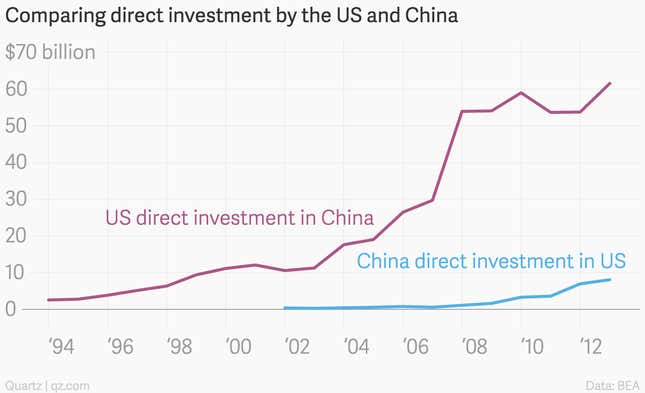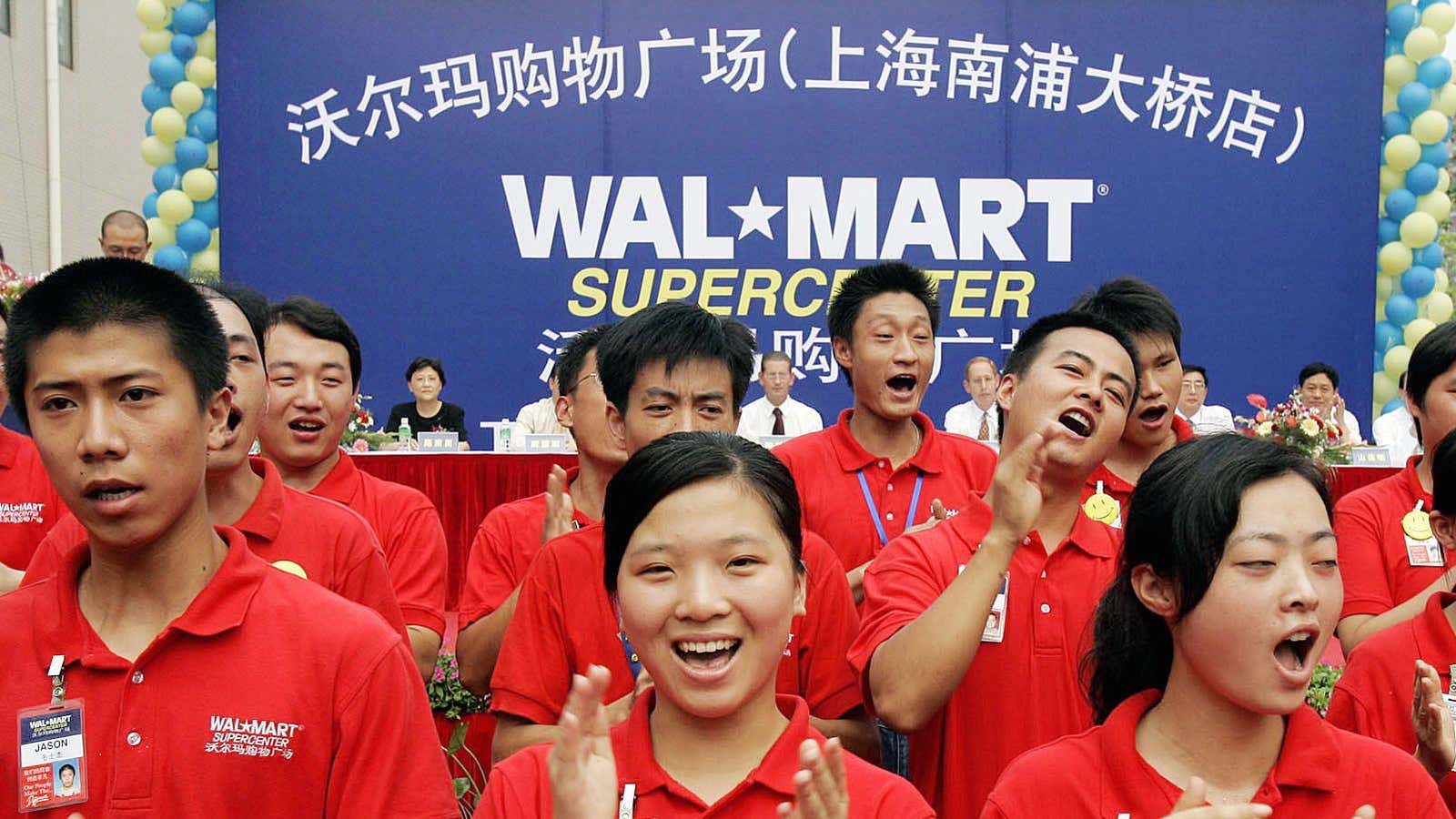A new attempt to tout the political benefits of Chinese investment in the US highlights just how lopsided the financial exchange is between the two major economies.
The National Committee on US-China Relations—an organization backed by multinational companies eager to minimize restrictions on trade between the two nations—has hired the Rhodium Group to calculate the economic effects of Chinese companies operating directly-owned US subsidiaries.
The report finds more than 80,000 American jobs, and identifies them by Congressional district—a reminder to politicians that their constituents’ livelihoods rely on Chinese capital (this, as the US is considering a new treaty with China to increase bilateral investment). Many of the jobs require high levels of skill, including at research and development labs, as Chinese firms seek to develop new technology.
The researchers expect Chinese capital in the US to support as many as 400,000 workers by 2020, as direct investment in the US grows along with China’s economy itself.
But to put some perspective on direct job creation at this scale, consider that just one US company, mega retailer Wal-Mart, employs more than 100,000 people at its 419 stores and 20 distribution centers in China. These numbers speak only to direct investment; they don’t include the indirect job creation that US companies like Wal-Mart have brought to China in the form of sub-contracted manufacturing facilities.
Of course, the numbers shouldn’t surprise us; it makes sense that there is far more US investment in China than the other way around, since the US economy has more capital and China offers better returns.

But the direct comparison can make it hard to sell Americans on the benefits of having all that capital freely slosh around the world.
There’s no doubt that trade has helped Americans via Wal-Mart itself—the imported goods Wal-Mart sells are cheaper typically than what’s made in the US, and the return on Wal-Mart’s operations in China benefits the company’s US stockholders. But when it comes to Chinese capital supporting US jobs, the effect is still small.
